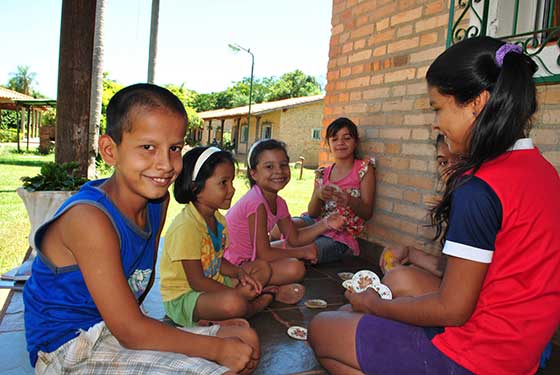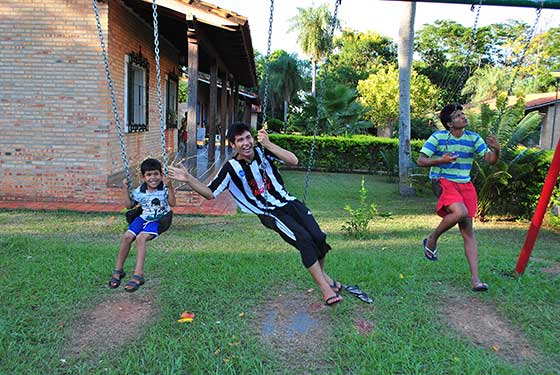Rural poverty is on the rise, and subsistence farming is becoming impossible for many

The small town of Belén is located exactly on the Tropic of Capricorn in the Concepción department. The town has around 12,000 inhabitants. Its economy is based mainly on forestry, agriculture, and the production of the “mate” herb.
Official government estimates show that almost 50 per cent of the rural population in Paraguay live in conditions of poverty. In part, this is due to the increasing presence of transnational companies, primarily in the production of soya and cotton, with 85 per cent of Paraguayan land now in the hands of two per cent. Rural farmers are losing their land and therefore finding it increasingly difficult to sustain their families.
Working from a young age and a lack of education perpetuate the cycle of poverty
The situation is further aggravated by the lack of education that is prominent amongst the poorest sectors of society, with 55.4 per cent of people in extreme poverty having no education or none above primary school level. Thousands of children have to contribute to the family income, which severely affects their education: absenteeism, poor performance, over-age in the grade and eventual drop-out are the consequences.
Child labour laws in Paraguay are very loosely defined and overwhelmingly ignored. Over 50 per cent of children between the ages of five and 17 are estimated to work, mainly in domestic labour in homes, both as servants or for a small salary. In fact, one fifth of women in Paraguay work as domestic employees, and almost 60 per cent of them are under the age of 29. These girls and women often suffer discrimination due to their rural backgrounds and lack of education.
Children and young people need support so that they can stay in education – no matter what their family situation – in order to improve their chances as adults.
What we do in Belén

Care in families: For children in the region who are no longer able to live with their parents, SOS families can offer a loving home In each family, the children live with their brothers and sisters, affectionately cared for by their SOS parent.
Wherever possible, we work closely with the children’s family of origin, so that they can return to live with their families. When this happens we work towards supporting them during the period of change and adjustment.
Support for young people: When young people from the children’s village are ready to move out of the family home while they pursue further education or vocational training our SOS Youth Programme makes shared accommodation available to them in the village. With the support of qualified counsellors, the young people learn to take responsibility, plan their future and prepare for independent adult life.